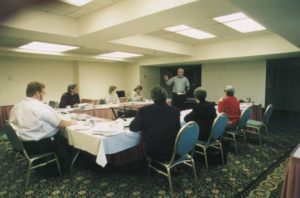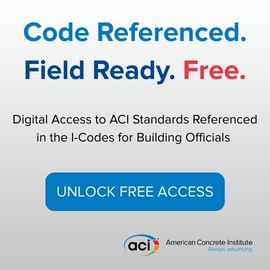
The Permit Technician Certification exam: Coming of age
The number “21” has many meanings: it’s the total number of spots on a standard die; the number of firings in a respectful 21-gun salute; a good number to have in the game of Blackjack; and it signifies the age of majorityand the threshold of adulthood. It also happens to be the number of years since the very first Permit Technician Certification examination was administered. Yes, it’s hard to believe, but it’s true!
Front counter personnel — now commonly known as permit technicians or permit techs — have always been considered an integral part of a building department. They are typically the first point of contact when someone comes in to apply for a building permit. In fact, other than the building inspector, the permit technician may be the only government employee that a citizen interacts with while living in that jurisdiction. Professional certification exams existed for building inspectors, plans examiners, building and fire officials, and other code professionals but until 1998, no such exam existed for permit techs since they were primarily considered “clerical” personnel. As one permit tech stated, “We’re the Rodney Dangerfields of the code industry. We get no respect!” That would all change in September of 1998.
Background

In 1978, the Washington Association of Building Officials (WABO) began providing a bi-annual training program for building department counter staff. It was discovered through this training that the counter staff had a broad and wide-ranging variety of duties. Primarily clerical in nature, the duties also required more of a basic technical background in order to properly accept construction documents when they were submitted for approval. If these documents were incomplete or contained incorrect information, they could not be properly reviewed by the plans examiners and, thus, had to be rejected and returned to the applicant for proper content. Of course, individual duties varied among jurisdictions, but the overall concept was the same: if plans could not be processed, they could not be issued, and customer service suffered.
In the 1990s, counter technician groups began forming and in 1995 and WABO suggested that its state’s permit techs form an organization of their own. This also occurred in 1993 when the Counter Technicians Association was formed in the greater Los Angeles area. Eventually the International Conference of Building Officials (ICBO) — a legacy code organization of the International Code Council — became involved and began the process of developing a Permit Technician Certification exam.
In 1997, more then 60 applications, primarily from the western United States, were submitted to the ICBO Education Committee for consideration to serve on the proposed ICBO Ad Hoc Permit Technician Certification Committee. I was lucky enough to be chosen to be among the eight members appointed and the first meeting took place Jan. 14–17, 1998, in Newport Beach, Calif. Those in attendance at the first meeting were:
- John Hurst, Plans Examiner — City of Rancho Cucamonga, CA
- Steve Burger, CBO — City of Goodyear, AZ
- Patricia Gonzales, Permit Technician — City of Inglewood, CO
- Bobbie King, Permits Manager — University City, WA
- Cliff Lee, Construction Services Technician — City of Buenaventura, CA
- Juliann Montgomery, Permit Technician — City of Lacey, WA
- Sandra Reynolds, Development Associate II — City of Austin, TX
- Joan Vandermolen, Permit Technician — City of Longmont, CO
Doug Hatch, former ICBO senior certification coordinator, now test developer and program manager with the International Code Council, was in charge of the meeting. Hatch spelled out the responsibilities and complex duties the committee needed to perform and how they would be accomplished. Questions had to be developed and formally vetted. Formal references had to be established for each correct answer. Cut scores (the weight or value of each question), KSAs (knowledge, skills and abilities), and plausible answers and distractors had to be established for the questions and, above all, it had to be a legitimate exam representative of permit technician duties. In other words, we wanted the permit tech to feel exceptionally proud that he or she passed the exam.
The original scope of the exam, as developed by the committee, read as follows:
“The Permit Technician performs critical tasks as front-line personnel related to customer service and construction development. This includes reviewing, accepting, distributing, processing, documenting and maintaining departmental information, reports, plans, specifications, applications, permits and related inspections according to established guidelines. Explains procedures, related codes and ordinances.”
As with any certification exam, it needed to be determined what the typical job tasks of a permit tech were and what general topics would need to be covered on the exam. Duties of a permit tech varied widely across the country, so in March 1998 a job task survey developed by the committee was mailed to 461 permit techs and 64 percent of those surveyed responded. The results of the survey were used to create the overall outline of the exam and establish its validity. The four categories were established as: General Administration 37 percent (presently 39 percent); Legal Aspects 23 percent (presently 22 percent); Plans and Documents 23 percent (presently 25 percent); and Zoning and Site Development 17 percent (presently 14 percent). These four categories have essentially endured since their initial development with only the percentages changing slightly as noted in parenthesis.
The second meeting of the Ad Hoc Committee was held June 2–6, 1998, in Newport Beach. At this meeting, enough questions were developed to create two separate exams based on the four exam categories. Each exam would have the same amount of total questions and the same amount of questions in each of the four categories. The decision was also made to make this a four-hour exam with 150, open-book, multiple-choice questions. The goal was to administer the first exam in September of 1998. This goal was accomplished, and 116 candidates took the very first exam.
The five initial books chosen to be used as references for questions on the first exam were:
- 1997 Uniform Building Code, Volume 1 (ICBO)
- 1997 Uniform Administrative Code (ICBO)
- 1997 Uniform Zoning Code (ICBO)
- 1996 Legal Aspects of Code Administration (Building Officials and Code Administrators International)
- You Can Build It (Council of American Building Officials)
After the International Code Council was officially formed, the Permit Technician Certification exam went national in 2004 and was standardized with 60 open-book, multiple-choice questions and a two-hour time limit.
Since the first exam, several of the reference books have, out of necessity, been changed. The information in the initial 1997 ICBO Uniform Administrative Code was, essentially, contained in Chapter 1 “Administration” of the International Building Code and, as such, the Uniform Administrative Code was abandoned. Additionally, there was initially no “Residential Code” and, as a result, all questions came from the Uniform Building Code, which covered both residential, multi-family and commercial occupancies. Consequently, it was decided to solely use the International Building Code as a reference along with the International Zoning Code. And finally, around 2006, the You Can Build It book was replaced by the more comprehensive Basic Code Enforcement book. The Legal Aspects of Code Administration continued to be used.
The ICC Permit Technician Exam Development Committee — staffed with highly qualified members — continues to meet annually in order to update and validate questions as the codes are revised every three years.
Benefits
Since that very first exam, many positive opportunities for permit techs have become, and continue to become, available:
- Being certified shows initiative in being a professional code official and lends credibility to the position, individual and jurisdiction.
- The Permit Specialist certification is also available with over 270 now certified.
- Multiple on-site classes are now available to permit technicians through the various Code Council chapters.
- More jurisdictions are requiring certification within a stipulated amount of time after hiring.
- Being certified before applying for a new job is highly beneficial.
- If a permit tech works for a jurisdiction now, he or she should check to see if the jurisdiction offers any financial incentives if the employee becomes certified.
- The certification is recognized nationwide.
- An abundance of formal training has been developed. Visit: learn.iccsafe.org for multiple online permit technician training and study courses as well as upcoming webinars.
- The Code Council periodically offers the Permit Technician Academy.
- The ICC Permit Technician Study Companion was published in 2006 and is updated every three years.
- The Permit Tech Nation, which is a national permit technician chapter, was organized and is now available as a valuable resource.
- Multiple ICC permit technician chapters have been formed in many states.
- Although not formal ICC permit technician chapters, many permit tech groups have been established as formal committees of building official chapters. Contact a chapter near you.
- Live too far away from a test center? PRONTO (Proctored Remote Online Testing Option) is now available.
It’s been 21 years since the first permit technician certification exam was administered in September 1998, but look at all that has transpired. As of this writing, almost 3,000 candidates have become certified permit technicians. The permit technician position is no longer just a job; it’s a career that can be used to become a building inspector, plans examiner or even a building official. To learn more about the Permit Technician Certification exam, visit: www.iccsafe.org/certification-exam-catalog/ and search for “Permit Technician”.
NOTE: Special acknowledgments to Cliff Lee, former construction services technician, city of Buenaventura, Calif., for his original article, “Get Certified!” in the 1999 March-April issue of the ICBO Building Standards magazine.







